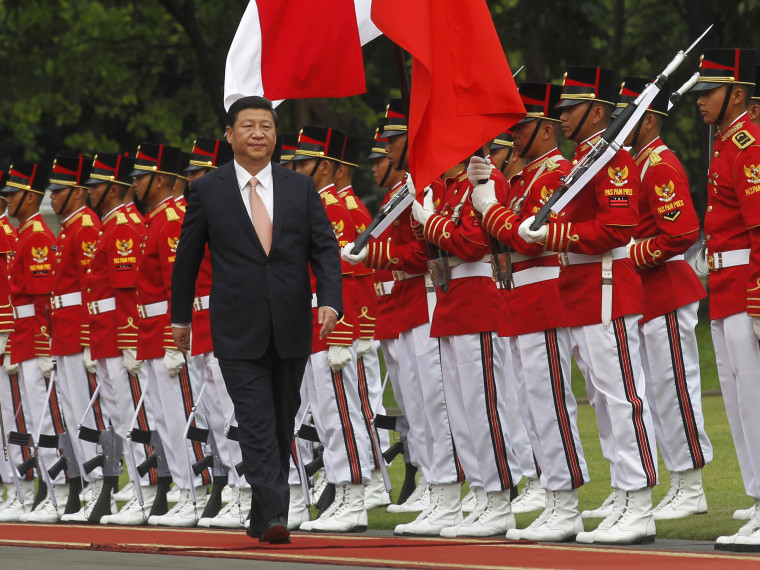I'd love to know if congressional Republicans understand developments like these, or consider the consequences important.
As President Obama made apologetic calls to Asia to cancel his planned trip, China's leader, Xi Jinping was taking a star turn in some of the same countries Mr. Obama would have visited.This week, Mr. Xi became the first foreigner to address the Indonesian Parliament, offering billions of dollars in trade to the country that was Mr. Obama's childhood home. Mr. Xi then moved on to Malaysia, before preparing to attend two Asian summits that Mr. Obama had to abandon because of the government shutdown.With the cancellation of the visits, the much-promoted but already anemic American "pivot" to Asia was further undercut, leaving allies in the region increasingly doubtful the United States will be a viable counterbalance to a rising China. [...]That wariness, Asian officials and analysts say, is giving China a new edge in the tug-of-war between the two countries over influence in Asia, with the gravitational pull of China's economy increasingly difficult to resist.
Richard Heydarian, a foreign policy adviser to the Philippine Congress and a lecturer in international affairs at Ateneo de Manila University in Manila, told the Times, "How can the United States be a reliable partner when President Obama can't get his own house in order?"
Let that quote roll around in your brain for a moment.
International observers can't be expected to appreciate the nuances of U.S. governmental structure, along with concepts such as separation of powers and co-equal branches of government. What people around the world know is more basic: the United States is a global superpower that can't keep its lights on and is threatening to stop paying its own bills -- not because it lacks the money, but because its legislative branch may decide it doesn't feel like meeting its obligations anymore.
There's a global competition underway for power and influence in the 21st century. Americans have rivals who are playing for keeps. We can either be at the top of our game or we can watch others catch up to our position.
And it's against this backdrop that House Speaker John Boehner and his Republican colleagues shut down the government, threaten default, fight tooth and nail to strip Americans of their health care benefits, and keep spending levels so low we're kicking children out of Head Start centers while our global competitors double down on education.
It's as if some have a vision in which we no longer lead and we aim for second place on purpose.
President Obama was eager to travel to Asia to demonstrate U.S. support for the Philippines and Malaysia, while bolstering U.S. influence in Southeast Asia, but now he can't -- congressional Republicans aren't done with their tantrum.
The world is laughing at us, wondering why our policymakers can no longer complete basic tasks, and lawmakers from one party just don't seem to notice or care.
As I keep arguing, great nations can't function the way we're struggling to function now. The United States can either be a 21st-century superpower or it can tolerate Republicans abandoning the governing process and subjecting Americans to a series of self-imposed extortion crises.
It cannot do both.
